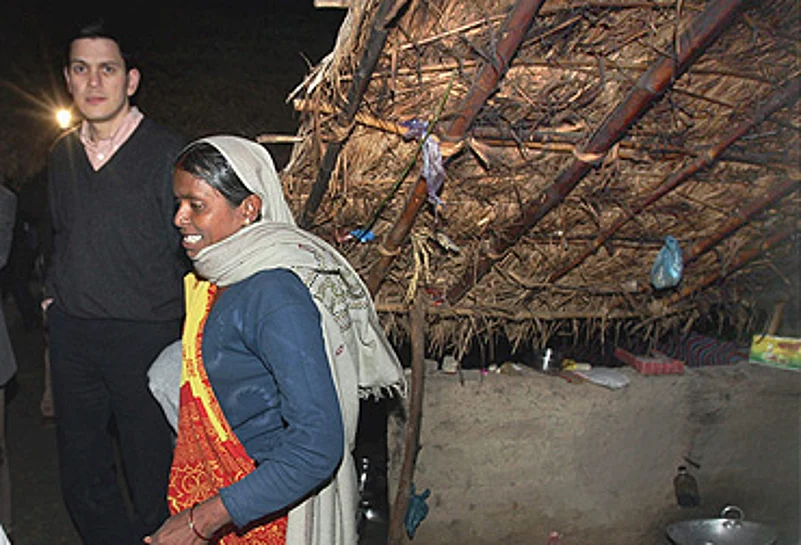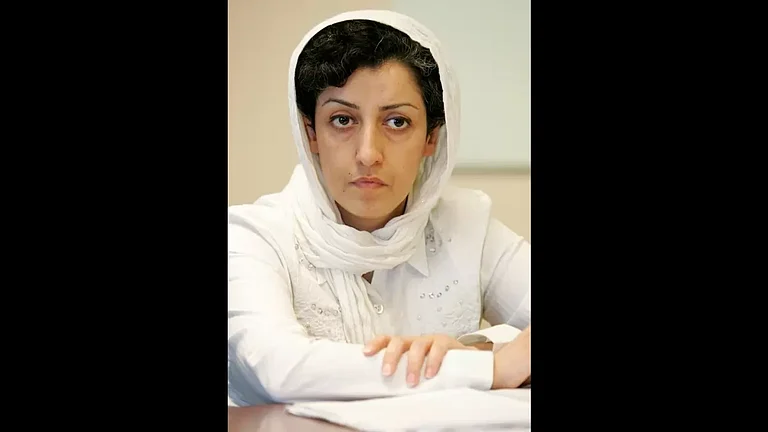India was no exception on that night. South Block has already identified some potential areas of discomfort. Former Indian ambassador to the US, Naresh Chandra, told Outlook, "His general policy ideas are good for India. But when you go from the general to specifics, the bureaucrats take over. And that can be cause for worry." Though it will take at least three weeks for the precise contours of Obama’s policies to emerge clearly, sections in the Indian establishment are already concerned that his officials have identified South Asia as one of the "hotspots" in the world.
In fact, weeks before January 20, a highly respected Indo-US think-tank group met in Washington. Consisting of former diplomats, bureaucrats, industrialists and policy planners, the group identified four major potential areas of concern between the two sides, stemming from the likely changes in the US administration’s policies. To begin with, expect a tougher American stand on climate change, WTO negotiations, and a decisive push from Washington on the disarmament issue, entailing the adoption of the Comprehensive Test Ban Treaty (CTBT) and the Fissile Material Cut-Off Treaty (FMCT). On these three issues, India and the US have differences, though these can be reconciled.
The group identified Kashmir as a fourth area of concern, not on its own, but because this contentious issue may get linked to Obama’s avowed decision to commit more troops in Afghanistan (aka the Afghan surge policy). Obama believes thousands of extra legs could help root out the Taliban and Al Qaeda militants operating on the Afghanistan-Pakistan border, which will consequently stabilise Kabul.
The question is: what’s the link between Obama’s quest in Afghanistan and Kashmir? The short answer: they connect through the medium of Pakistan, which has an entrenched focus on both. Obama’s policy in Afghanistan will unfold in the backdrop of Delhi continuing to mount pressure on Islamabad to take credible action against the Mumbai masterminds. Though Delhi hasn’t ostensibly ruled out war as an option, the world will not countenance an Indo-Pak conflict. Consequently, Indian leaders have focused on creating international pressure on Pakistan, mainly through the US. This is where Obama’s Afghan policy complicates the situation.
Otherwise too, American pressure on Pakistan to act has its limits, obvious from the farewell telephonic conversation between former secretary of state Condoleezza Rice and foreign minister Pranab Mukherjee. Rice cautioned Pranab against taking any step that could weaken the civilian government in Pakistan. Rice’s stance didn’t surprise India. "What else can you expect from the US?" asked a prime ministerial aide. He argued that dependence on the US will yield India only "incremental results", adding that "while they will cooperate with us on counter-terrorism, the US will not want to be preoccupied with another India-Pakistan confrontation".
But will the pressure on Pakistan diminish because of Obama? As such, the first policy document the new administration released raised the hackles of Pakistan. Obama has made clear in the document that its proposed $7.5 billion (non-military) economic aid package to Islamabad (beginning 2009) will be closely tied to the cooperation it extends to America’s war against the terror groups operating from the Pak-Afghan border. This is proof, much to the Indian establishment’s relief, that Obama won’t repeat the Bush administration’s mistake of paying $11 billion to the Pakistan army for buying its support in Afghanistan.
Yet there’s room for worry. Pakistan’s furious response to the document has heightened apprehensions that the next step in its diplomatic manoeuvrings would involve raising the decibel level on Kashmir. In addition, US ambassador-designate to the United Nations, Susan Rice, has already identified Kashmir as one of the hotspots, bracketing it with the war-ravaged regions of the Balkans and West Asia. Since Obama too, in his past interviews, has tried to link the resolution of the Kashmir dispute with stability in South Asia, Rice’s comments raised a few eyebrows in Delhi.
Some in the Indian establishment are also a little disappointed that Obama’s policy document didn’t even mention India. But as one senior official told Outlook, "The document spells out the problems arising from Bush’s legacy. India isn’t part of the American problem. But yes, India can’t expect the same treatment from Obama as it received from Bush." Others, however, say the Obama team deleted references to India to perhaps mollify Pakistan—that it couldn’t possibly show the stick to Pakistan and, simultaneously, exhibit any cosiness with India. That would have been akin to rubbing salt in the wounds of Pakistan, the cooperation of which is vital for the war in Afghanistan.

In the sheds: UK foreign secretary David Miliband in Amethi
Introducing a note in the Kashmir symphony was British foreign secretary David Miliband’s recent observation that the Kashmir problem needs to be resolved to establish peace between India and Pakistan. Since the US and British policies on South Asia are often in sync, many in the Indian establishment consequently feel that Miliband’s comments are a "forewarning" of things to come. Former foreign minister and BJP leader Yashwant Sinha told Outlook that "it’s not at all a welcome development. There can’t be a linkage between Kashmir and the other hotspots in the world. This is totally unacceptable to India and it must be made very clear to the US".
India expressed its displeasure over Miliband’s comments and made it clear that future British access to the Indian leadership would be curtailed should London persist in dragging Kashmir into the India-Afghanistan-Pakistan triangle. This position was also conveyed informally to the Americans. At the think-tank meeting weeks ago, American participants in fact inquired from their Indian counterparts whether India would grant a visa if Obama were to appoint a special envoy for South Asia. The Americans, says a source, were told, "Yes, he will be granted a visa but not the access to meet Indian leaders." (Perhaps the reason why the Obama administration has been talking of appointing a special envoy only for Afghanistan and Pakistan.)
Still, it’s premature to fear that Obama has designs on Kashmir. "Since he’s looking for early success, I don’t think Obama will push for something which he knows will not be acceptable to India," says Naresh Chandra. A section in the foreign ministry also feels India shouldn’t be hyper-sensitive on Kashmir, reacting to every US statement on the issue, however innocuous. Says a senior Indian ambassador serving in the Arab world, "India should behave like a confident nation and take advantage of becoming a partner of Obama’s vision and his attempt to change the world order that George W. Bush has so damaged. We should stop dubbing countries as enemies the moment they raise Kashmir."
India has consistently maintained that Kashmir is an Indo-Pak bilateral issue, that Delhi can brook no third-party mediation. Besides, diplomats maintain, India has taken several initiatives to restore normalcy in Kashmir and encourage people-to-people contacts across the line dividing the state. The huge voter turnout in the recent assembly polls underscores the success of India’s initiatives. In other words, India can tell the world it isn’t an authoritarian state suppressing a people to occupy their land.
Another school of thought contends that to counter Pakistan’s pressure on Kashmir, India ought to rethink its Afghanistan policy. This school says India should exploit Obama’s surge policy in Afghanistan and engage militarily there to cap what is the fount of terrorism in the region. Says K.C. Singh, a former secretary in the foreign ministry, "The US has to be weaned away from its total dependence on Pakistan for both access as well as for their counter-terrorism strategy against the Taliban and Al Qaeda." India, along with others in the region, should develop a strategy as "a supplement to the Pakistani cooperation and also as an alternative to it". Agrees Yashwant Sinha, "India should commit its troops in Afghanistan if it gets an invitation from the government in Kabul."
Such arguments have acquired a new salience following Afghan President Hamid Karzai’s unscheduled visit to Delhi early in the month and Pranab Mukherjee’s trip last week to Kabul. The debate, initially, was sparked off by army chief Deepak Kapoor publicly favouring an Indian military role in Afghanistan. Till now, India has mostly sent its troops to a foreign land under the UN banner.
But others express grave reservations about sending Indian troops to Afghanistan. "The situation will become far worse for us if we get involved there militarily. The respect we get from the Afghan people is for our developmental work and also because we are not part of the US or NATO forces. It will all change the moment we send in our troops. It will not go down well in the Islamic world either," another prime ministerial advisor cautioned.
As Obama’s Afghan policies change the dynamics in South Asia, and Islamabad plays a cat-and-mouse game over punishing the Mumbai blast masterminds, Afghanistan could well become a weapon in Delhi’s hand to push Islamabad on to the backfoot.

























